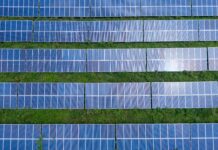Doug Young
 I’ve been trying to avoid writing about the latest punitive tariffs for Chinese solar panels that look set to come from the European Union this week, since the story has dragged on for more than a year now and the outcome was almost inevitable. But that said, it would be a bit remiss of me not to write at least something on this latest move, which is expected to see European Trade Commissioner Karel De Gucht formally recommend the introduction of anti-dumping tariffs for solar panels supplied from China. (English article) The latest reports say the recommended levies are likely to be set at 40 percent or higher, even though industry insiders say anything above 30 percent could seriously hurt China’s already struggling solar panel sector. [Ed. Note: Recommended Tariffs were release on Thursday, averaging 47.6% in a range from 37.3% to 67.9%. More here.] But instead of focusing on this tired old story, I’d like to move my attention to China’s predictable reaction, which was to lash out with a warning to the EU on the risks of levying such tariffs.
I’ve been trying to avoid writing about the latest punitive tariffs for Chinese solar panels that look set to come from the European Union this week, since the story has dragged on for more than a year now and the outcome was almost inevitable. But that said, it would be a bit remiss of me not to write at least something on this latest move, which is expected to see European Trade Commissioner Karel De Gucht formally recommend the introduction of anti-dumping tariffs for solar panels supplied from China. (English article) The latest reports say the recommended levies are likely to be set at 40 percent or higher, even though industry insiders say anything above 30 percent could seriously hurt China’s already struggling solar panel sector. [Ed. Note: Recommended Tariffs were release on Thursday, averaging 47.6% in a range from 37.3% to 67.9%. More here.] But instead of focusing on this tired old story, I’d like to move my attention to China’s predictable reaction, which was to lash out with a warning to the EU on the risks of levying such tariffs.
Personally speaking, I do believe that China regularly engages in the kinds of unfair support for its solar sector that prompted the initial US and EU investigations. That’s just the way that Beijing does things: it picks industries it wants to promote, especially in emerging high-tech areas, and then showers them with all kinds of benefits like tax rebates, free or cheap land and other forms of policy support.
But instead of acknowledging this problem, which gives Chinese firms an unfair advantage over companies in other markets, China simply continues to do nothing to address the source of the complaints. Instead, its approach is always reactionary, whereby it sits back and watches momentum slowly build against its solar panel makers, and then reacts angrily at each negative development.
China certainly can’t say it didn’t see this coming, as this clash has been building for nearly 2 years now. It all began with the bankruptcy of a US solar panel maker in 2011, which led to a congressional hearing because the failed company had received a government-backed loan. That hearing resulted in the launch of a formal investigation, which ended with the decision to levy punitive tariffs last summer, and the finalization of those tariffs in November. (previous post)
In the meantime, the EU launched its own investigation since many European solar panel makers also struggled for similar reasons. Like the US case, the EU process has been long and involved a number of major milestones, the latest of which will be the recommendation to impose tariffs this week. That move will be followed by a few more administrative steps, before such tariffs are most likely finalized later this year.
In the face of this tired and ultimately destructive cycle, leaders in Beijing should seriously reconsider their approach, taking a more constructive and proactive tack. This kind of angry and reactive approach is actually quite typical for Beijing in many areas, from trade disputes to diplomacy and domestic social issues.
Chinese leaders typical abhor the idea of any kind of “interference” in such issues, and usually just prefer to let matters build to a crisis level before taking any action. The only problem is that usually by that time, the problem has become so great that it’s difficult to solve. What’s more, frustration and anger from all parties make constructive dialogue difficult or impossible, which ultimately results in this kind of destructive deadlock.
At this point in the solar panel dispute, it’s probably already too late for Beijing to take any constructive steps to try and address concerns in the US and Europe. But that doesn’t mean that China shouldn’t at least try to make at least some kind of conciliatory effort, which could perhaps help to end this dispute sooner rather than later. That’s important, since it’s in everyone’s interest to salvage this key sector that will be critical to creating a sustainable energy environment in the future.
Bottom line: Beijing needs to change its approach to one of constructive dialogue rather than angry warnings to solve its solar panel disputes with the US and EU.
Doug Young has lived and worked in China for 15 years, much of that as a journalist for Reuters writing about Chinese companies. He currently lives in Shanghai where he teaches financial journalism at Fudan University. He writes daily on his blog, Young´s China Business Blog, commenting on the latest developments at Chinese companies listed in the US, China and Hong Kong. He is also author of a new book about the media in China, The Party Line: How The Media Dictates Public Opinion in Modern China.
Photo: Angry sculpture in Majishan Grottoes in Gansu Province, northwest China. Photo by MarsmanRom via Wikipedia Commons.






